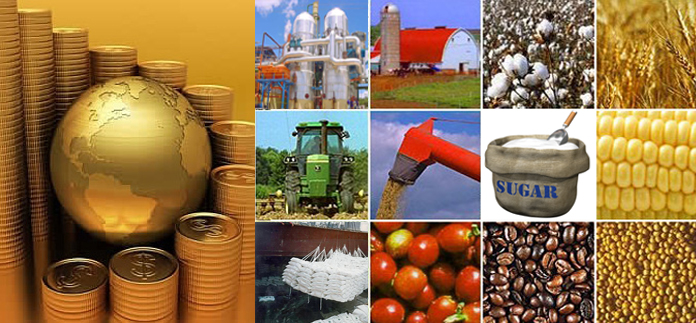In the realm of finance and economics, a commodity is a raw material or primary agricultural product that is traded in large quantities and usually standardized in quality. Unlike manufactured products, which are end products that have undergone processing and refinement, commodities are raw materials used to create other products. They represent the building blocks of modern economies and play a pivotal role in global trade and financial markets.

Image: www.hkp.es
Why Commodities Matter
Commodities are essential to our everyday lives. From the food we eat to the clothes we wear and the devices we use, countless goods rely on raw materials at some stage of their production. As a result, commodities have a direct impact on our economic well-being, influencing everything from inflation to economic growth. Moreover, understanding commodities empowers individuals to make informed decisions in areas such as investing, portfolio allocation, and financial planning.
History of Commodities
The trade of commodities dates back to the earliest civilizations, as people bartered essential goods to meet basic necessities. As societies developed and trade networks expanded, the need for standardization and quality control became apparent. Standardized commodities allowed for easier trading and facilitated the growth of futures markets, giving rise to the modern commodity trading system.
Types of Commodities
The diverse range of commodities encompasses a multitude of primary goods. Key categories include:
- Energy Commodities: These constitute the fuels that power industries, businesses, and transportation. Examples include crude oil, natural gas, and coal.
- Metals: Found in products from electronics to construction materials, metals such as gold, silver, copper, and aluminum are vital for industrial development and infrastructure.
- Agricultural Commodities: Essential for sustenance, agricultural products include grains (corn, wheat, soybeans), meat, dairy, and sugar.
- Precious Metals: Renowned for their value storage properties, precious metals like gold, silver, and platinum are often sought as investments during economic uncertainty.

Image: empower2inspire.com
Grading and Standardization
To ensure consistent quality and facilitate global trade, commodities are often graded according to specific standards. These grades are established by industry organizations or government agencies and aim to assess a commodity’s quality, purity, and characteristics. Standardization makes it possible to compare and trade commodities from different producers, facilitating a more efficient and transparent marketplace.
Commodity Markets
Commodities are primarily traded on commodity exchanges, which are specialized marketplaces where buyers and sellers come together to transact contracts for future delivery. The world’s leading commodity exchanges include the New York Mercantile Exchange (NYMEX), the Chicago Mercantile Exchange (CME), and the Intercontinental Exchange (ICE). These exchanges provide a platform for risk management, price discovery, and liquidity for commodity traders and investors.
Role in the Global Economy
Commodities have a profound impact on the world economy. As a key component of global trade, fluctuations in commodity prices can ripple through industries and markets worldwide. Understanding the dynamics of commodity markets is crucial for businesses and governments seeking to make informed decisions and mitigate risks associated with price volatility.
Investment Potential
Commodities offer unique investment opportunities due to their distinct risk and return characteristics. Many investors diversify their portfolios by including commodities to reduce risk and potentially enhance returns. There are various ways to invest in commodities, such as through physical investments (buying and storing actual commodities) or through financial instruments (e.g., futures contracts, exchange-traded funds).
Challenges and Opportunities in Commodity Markets
The commodity markets are not without their challenges. Factors such as geopolitical tensions, natural disasters, and technological advancements can influence commodity prices and create both opportunities and risks for investors. Staying abreast of industry news, geopolitical events, and global economic trends is vital for success in this field.
Que Son Los Commodities
Unveiling the World of Commodities
Commodities are the backbone of modern economies and have a profound impact on our lives. Understanding the basics of commodities, from their history and classification to their role in global markets, empowers us with knowledge that can guide financial decisions, inform investment strategies, and enhance our understanding of the complex economic landscape we navigate.






